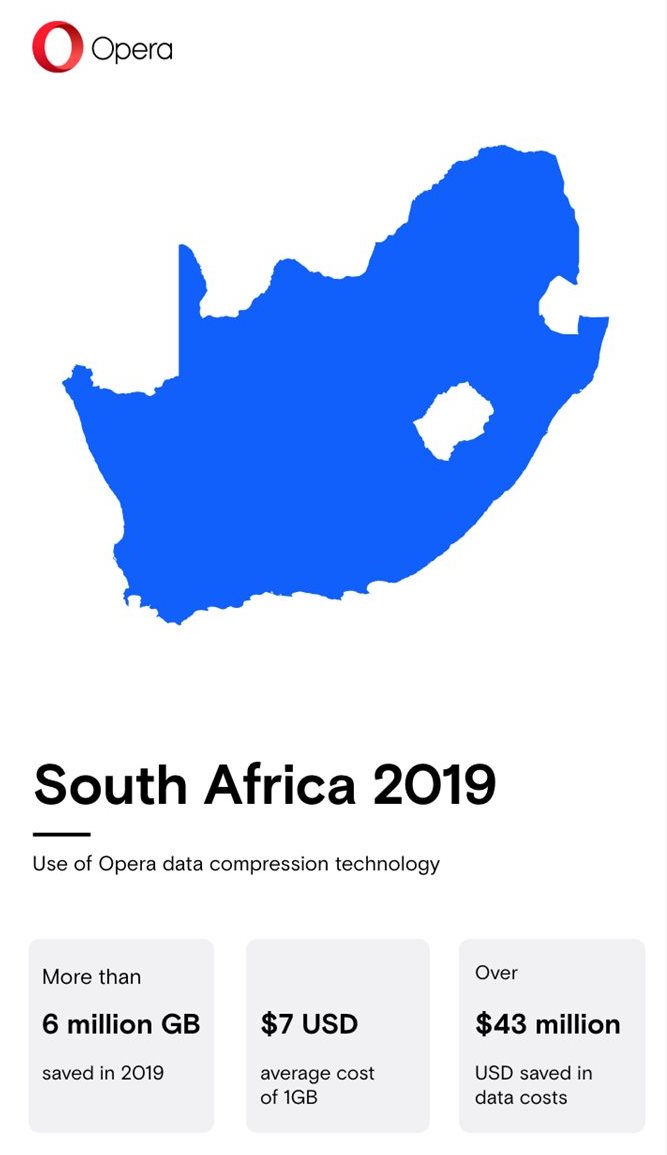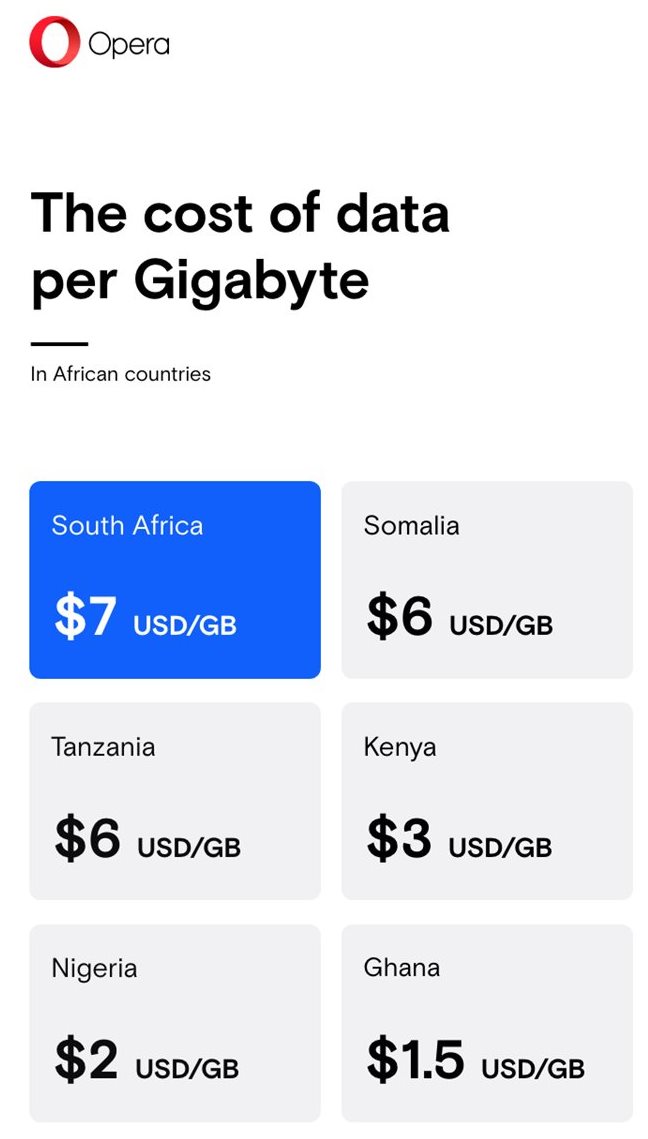Data prices remain an obstacle in Africa
These efforts are focused on introducing data price discounts across the country’s mobile network operators, for low-income households. A free daily data allocation and free access to education and other public interest websites were also proposed.
The success of this initiative would effectively enable South Africa to capitalise on digital opportunities, which are sweeping across the globe at a rapid rate. These opportunities can potentially reverse the low levels of economic development, realise inclusive growth and ultimately connect the unconnected.

A report by GSMA’s The Mobile Economy 2019 forecasts that by 2025, 300 million more Africans will use the internet. The report indicates that there were 456 million unique mobile subscribers in sub-Saharan Africa by the end of 2018, an increase of 20 million over the previous year and representing a subscriber penetration rate of 44%. In addition to this, around 239 million people, equivalent to 23% of the population, use the mobile internet on a regular basis.
High data prices remain
Despite the continent’s accelerated drive towards a digital future, high mobile data prices remain an obstacle for millions of Africans, limiting smartphone users’ ability to access opportunities, including access to quality jobs accessible via online job portals, digital educational material and the ability to connect with loved ones over social media.
The need to break down this long-standing data pricing barrier has been echoed by the Competition Commission, which, as part of its Data Service Market Inquiry Report, found that Vodacom and MTN, the country’s two largest mobile network operators, are overcharging customers by as much as 30% to 50%. The Commission is currently in negotiations with the mobile operators to find ways to lower the price of data.
The National Development Plan: Vision 2020, which sets out a holistic approach to confronting poverty and inequality, highlights how the high domestic cost of broadband internet connectivity is a major hindrance, and how all South Africans should be able to acquire and use knowledge effectively. The Plan further highlights the need for a better-structured information, communications and technology (ICT) environment aimed at ensuring that South Africa does not fall victim to a “digital divide”.
The Commission and ICASA expected to make parliamentary presentations on their success in pressuring the country’s mobile network operators to reduce the cost of data on 2 March 2020. The Commission’s presentation is expected to include the outcome of negotiations with Vodacom and MTN to reduce their tariffs, especially for prepaid data bundles.
Accessing digital opportunities
In order to bridge the digital divide and connect even more African smartphone users to digital solutions that stem from the internet, Opera has followed its Africa First strategy and accelerated the growth of its user base in the African region. In the Q1-2019 edition of the State of Mobile Web report, Opera revealed that its African user base had grown by 26% over the year, reaching nearly 120 million users in the region.
Realising the need to make the internet more accessible to users, Opera has moved beyond being a browser and stand-alone news app developer, focusing on enabling African smartphone owners to overcome the challenges associated with the high price of mobile data.

Through data compression technology, Opera is capable of pre-processing and reducing the amount of data from a website before it reaches users’ phones, which prolongs the lifespan of the users’ data. The browser has proved to be a popular choice across the African continent due to its unique technology, which can save users up to 90% in mobile data.
Our most recent analysis on data compression showed that during 2019, people using Opera products in South Africa could save more than six million gigabytes of data while browsing, thanks to the data compression capabilities of Opera’s products.
Through reduced data prices, the relationship between smartphone owners and the internet can be transformed, overcoming the challenging high cost to connect which has hindered the progress of many of the continent’s citizens and industries.
In countries like Nigeria, Opera has already taken a step forward on making data costs more affordable to people. We have achieved this by working closely with telecommunications companies like Airtel and MTN offering unique data packages together, and by giving away free browsing every day. We are in the process of rolling out this successful strategy in Kenya, Ghana, Zambia, Uganda, Tanzania and South Africa.
The 21st century is being reshaped by the internet. The price of data needs to be lowered to enable Africans to not only connect to but also embrace the wealth of digital opportunities it makes possible. In doing so, inclusive growth can be promoted, and we can connect people and businesses to a digital future of tools and opportunities.




















